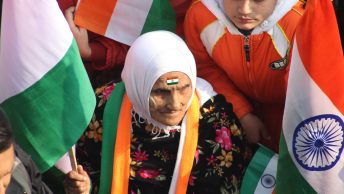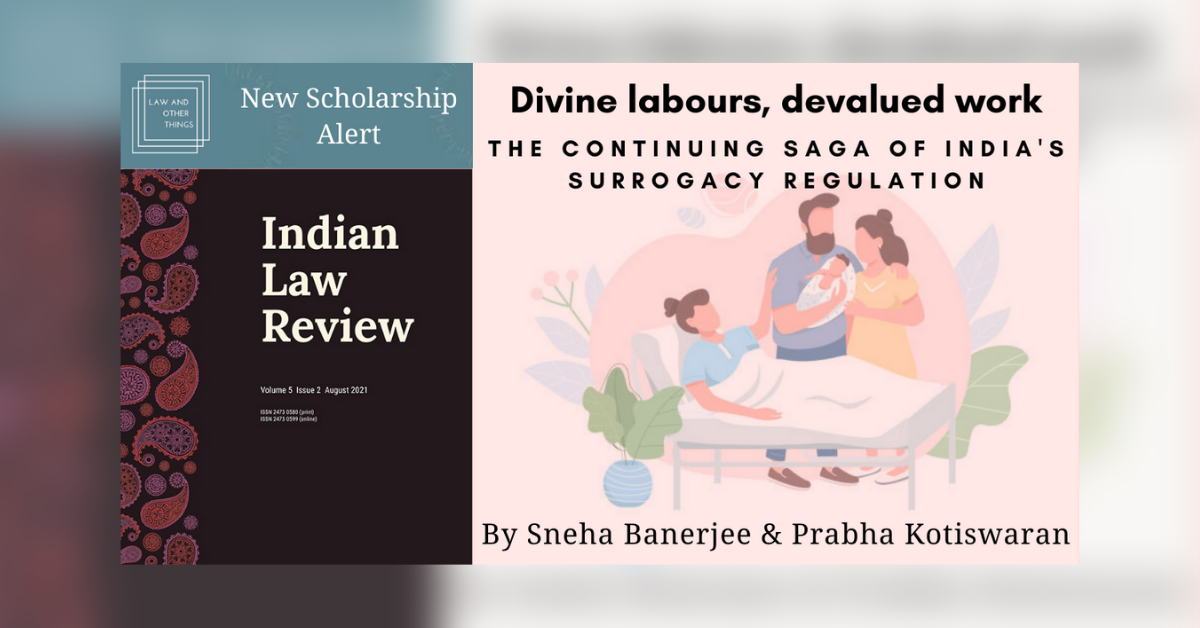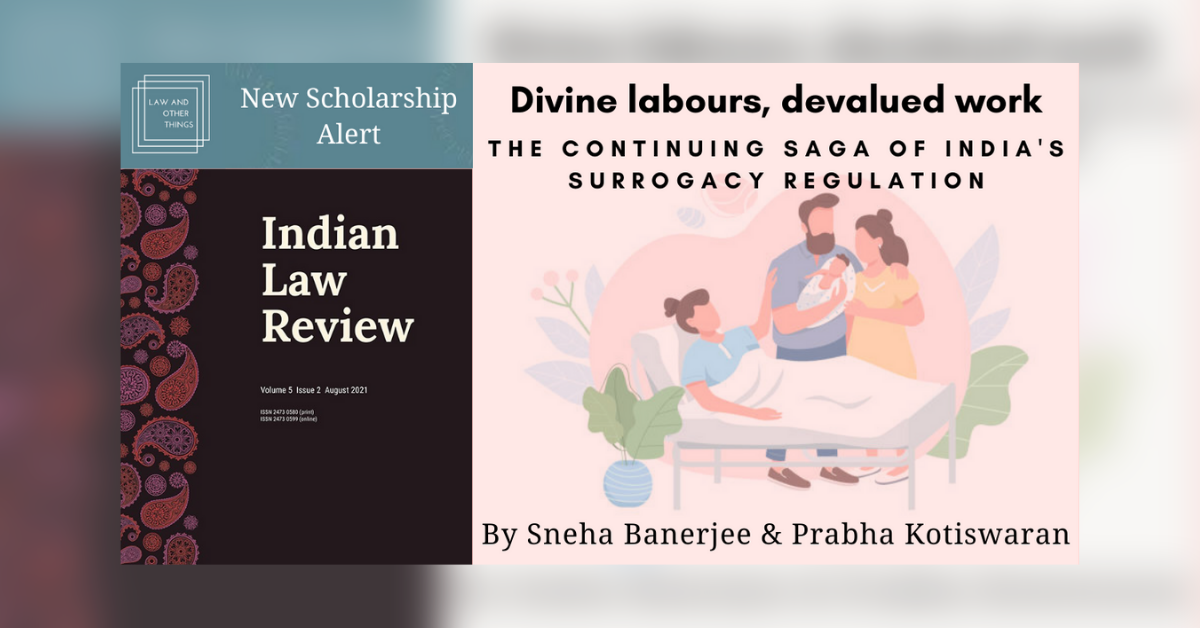On 8 August 2024, the Waqf Amendment Bill, 2024 was introduced in the Lok Sabha with an aim to bring wide-ranging amendments to the Waqf Act, 1995, including changes in the composition of the Waqf Board to include non-Muslim citizens and greater power to the collector in determining waqf properties. During the debate, the bill faced severe criticism from the opposition, which argued that the bill violates guarantees of Articles 14,15, 25, and 26 of the constitution. Ultimately, the house referred the bill to a Joint Parliamentary Committee under the chairpersonship of BJP MP Jagdambika Pal.
Merits and demerits of the bill have been discussed widely in various writings. (for instance, see here and here). This blog post is interested in a different issue, namely the working of the Joint Parliamentary Committee. This blog post argues that the Parliamentary Rules and Procedures for Committees are based on underlined values of non-partisan deliberation and consensus building which opposition alleges have been seemingly undermined in the working of the JPC in reference to Waqf Amendment Bill. The post argues that the Parliamentary Rules and Procedures in reference to working of committees are broadly soft rules and can only have a nudging effect on actual working of committees. Thus, a culture of justification and deliberation in parliament needs to supplement the rules.
It is important to clarify here that this piece does not comment on the proceedings and its politics and makes a limited point that communication between the ruling and opposition should be ensured and deliberative approach should be encouraged.
Law-Making and Committees of the Parliament:
Indian Parliament is a multi-functional institution. First, India follows the British system of ‘responsible government’, whereby the executive is responsible to the parliament. This principle is enforced through the daily activities of the parliament. The members of the parliament can seek responsibility from the government through various motions and questions like question hour, no-confidence motion, censure motion, cut motion, etc. This is the accountability function of the parliament.
Second, parliament is the leading law-making body in the constitution. India does not follow the British system of parliamentary sovereignty (although the British system has also been transformed considerably after the passing of the Human Rights Act, 1998). India has a written constitution, extensive judicial review powers with the Supreme Court and High Courts, and a federal structure, which requires that laws passed by parliament have to operate within limits of fundamental rights, and legislative competence, or else they can be found unconstitutional and inoperative. Thus, the Indian Parliament is neither the sole nor the supreme law-making body, yet it is the leading law-making body. This is the second important function of the parliament.
The committee structure of the parliament corresponds to these two functions. The Committee on Public Undertakings, the Committee on Public Accounts, and the Estimates Committees ensure the financial accountability of the government. Similarly, there are 17 Department-Related Standing Committees which were established in 1993. They have dual tasks relating to both accountability and law-making functions of the parliament. These committees examine both Demands for Grant from various departments and bills brought on initiation of the departments. For instance, in 2008, the Hundred and Eighth Constitutional Amendment Bill for reservation of seats for women in Parliament and State Assemblies was referred to the Department Related Standing Committee on Personnel, Public Grievances, and Law and Justice which consulted with various civil society organizations and submitted its report on the bill.
Related to the law-making function are the Joint Parliamentary Committees. Joint Parliament Committees are ad hoc committees which are created by the house through a motion of reference for consideration. It has 21 members from the Lok Sabha and 10 members from Rajya Sabha. The Committee on the Waqf Bill is a Joint Parliamentary Committee created through the resolution dated 8 August 2024 by the Lok Sabha with the consent of the Rajya Sabha.
Parliamentary Rules and the Underlined Values of Non-Partisan Deliberation and Consensus-Building:
In the parliamentary form of government, a government is formed by the party enjoying the majority in the house. This puts the opposition at a structural disadvantage since it is less likely that the members of the majority party in the house will seek accountability from their own party colleagues in the government. Hence, various countries have adopted various methods of ensuring that the opposition receives sufficient space to articulate its views. Thus, for instance, in the Parliament in the United Kingdom, there are designated ‘opposition days’ (20 days in each session) for discussion on subjects chosen by non-government parties. India, however, does not follow such a system. The opposition usually gets no say in deciding the agenda of the house or when a session will be called.
In such a situation, the committee structures are an important place for listening to opposition voices and engage in deliberations, and consensus building. The committee structure in India has a long-standing history going back to Montague-Chelmsford reforms. Currently, committees are governed by three sets of rules: general rules (Rule 253-286, applicable generally to all committees), specific rules (Rule 287-331N, applicable in reference to a particular committee), and internal rules formulated for internal functioning of the committee by the committee with approval of speaker (Rule 282).
These rules reflect the values of consensus building and deliberations. For instance, unlike the floor of the house, there are no cameras or broadcasting mechanism allowed for committee proceedings to discourage playing to an audience, and partisan action (Rule 266). The proceedings are usually confidential with the minute to minute of proceedings being released at a later stage once the report and the papers of the committee have been laid in front of the house. Further, since the parliament may not have time or capacity to go into technical aspects of all the bills introduced, the committee reports act as an important resource of information, providing details of pros and cons of a proposed bill. Thus, it is usually encouraged that committee reports should be unanimous. These reports are a goldmine of information for future researchers and civil society. They may also be useful for courts while undertaking statutory interpretation. Thus, the rules usually expect committee reports to be of high-quality drafted after proper consultations. (Some countries like Australia follow a system of full-time research staff who takes the lead in drafting of parliamentary reports. Research facilities in the Indian Parliament are a growing conversation).
Similarly, to prevent government interferences, a non-member ministers are allowed to speak or address the committee with permission of the chairperson but are not allowed to vote in the committee proceedings (Rule 299). The members who may have a personal, pecuniary, or direct interest in matter are also discouraged from being appointed (Rule 255). Standing committees are also rotated every year to ensure all different parties get a say in law-making and accountability function.
The rules have also been designed to further dialogue from actors outside the parliament. The committees can form sub-committees, call for documents, records and accept written memorandums [Rule 269, Rule 270; Rule 832], take evidence suo moto or on request from experts, civil society associations, or affected persons orally or in written [Direction 57(1)], and undertake study tours on ground [Direction 50(2)]. It can also take evidence from Ministries through their secretaries or other officials [Direction 59(1)]. During the recording of evidence from experts, members can seek clarifications, ask questions and maintain verbatim and otherwise record [Rule 273, 275(2)]. Witness to committees are protected from any legal proceedings or action for slander for the evidences rendered in the committees. Witnesses cannot be threatened or obstructed. This is considered extension of parliamentary privilege of freedom of speech under Article 105(3) of the constitution. The purpose is to allow free, full, and frank discussion.
For instance, in the 1990s, during the debate on the women’s reservations bill in front of the joint parliamentary committee under the chairpersonship of Geeta Mukherjee, various women’s organization, and NCW were invited to furnish evidence to the committee. The members of the committee also got a chance to cross-examine the women’s organizations and ask detailed questions on pros and cons of the proposed constitutional amendment. (These practices of pre-legislative consultation are not mandatory and attempts have been made to reform the same).
Another proof of the committee working more in a cooperative and deliberative spirit is their functioning beyond the restrictions of party whip. While it is the party which decides names of its members who will join a particular committee, yet members are freer in raising questions in the committees than in the house due to the mandatory whip for voting on the floor of the house.
The government is also expected to respond to the recommendations and report with reasons about the recommendations rejected or accepted. While committees are not supra-executive bodies sitting over the government and the government may reject the recommendations of the committees, reporting on recommendations can ensure a follow-up and detailed communication. (Further empirical and qualitative research is required on how much of it is actually followed). The committee reports are persuasive in nature, they can ensure media and public attention to important bills.
Overall, thus, non-partisanship and deliberation are underlined values that guide the parliamentary rules and procedures for the working of the committees. That’s why the committees are referred as mini deliberative bodies.
Surbhi Karwa is a PhD Candidate at UNSW-Sydney and a BCL (Distinction) graduate from the University of Oxford. Her research areas are women’s reservation under Indian Constitution, gender and law, global south constitutionalism, and constitutionalism beyond courts.
[Ed Note: The piece is edited by Jeetendra Vishwakarma and Published by Baibhav Mishra from the LAOT team]





eym9rq
uo6c2z
tVDoeZOWpf1
Pharmazee There is definately a lot to find out about this subject. I like all the points you made